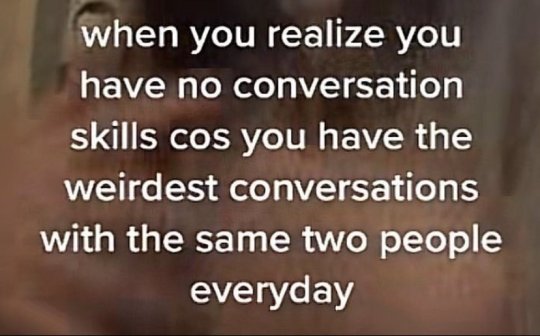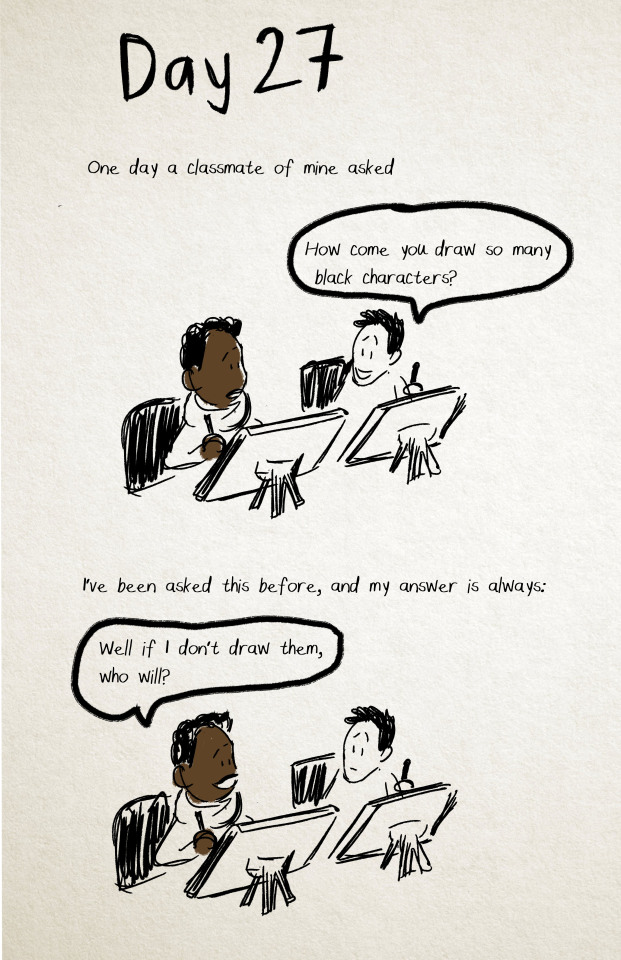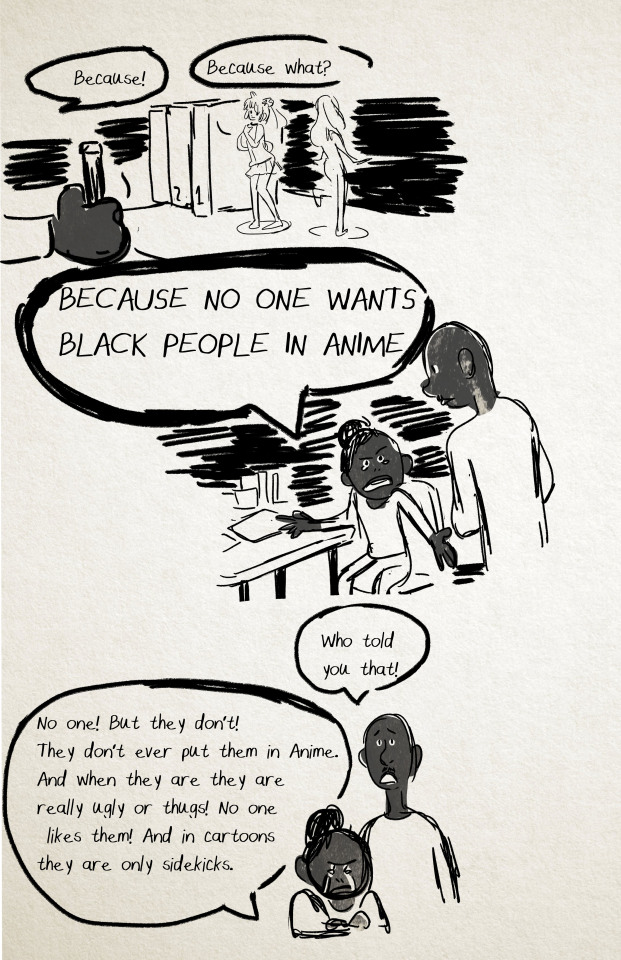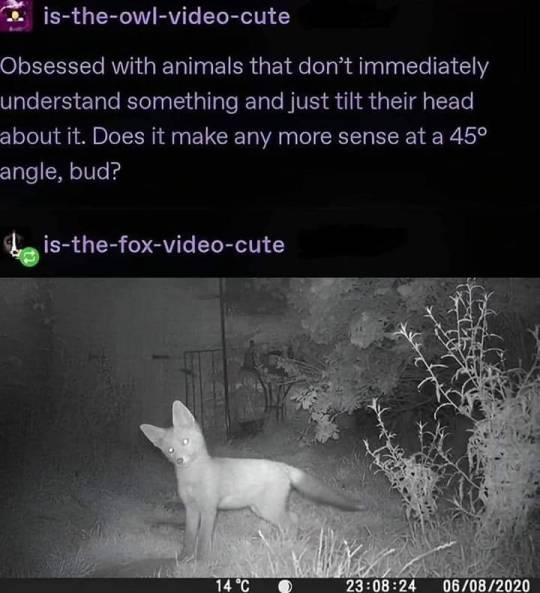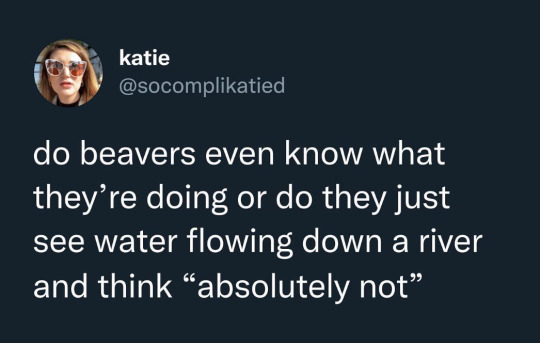Text
sorry if i’m being a party pooper but because rabies is apparently the new joke on here ??? please remember that rabies has an almost 100% fatality rate after symptoms develop so if you’re bitten or scratched by an animal that you aren’t 100% sure is vaccinated then GO TO A DOCTOR. it’s not a joke. really.
187K notes
·
View notes
Text
Horses: Since There Seems To Be A Knowledge Gap
I'm going to go ahead and preface this with: I comment pretty regularly on clips and photos featuring horses and horseback riding, often answering questions or providing explanations for how or why certain things are done. I was a stable hand and barrel racer growing up, and during my 11 year tenure on tumblr, Professional Horse Commentary is a very niche, yet very necessary, subject that needs filling. Here are some of the literary and creative gaps I've noticed in well meaning (and very good!) creators trying to portray horses and riding realistically that... well, most of you don't seem to even be aware of, because you wouldn't know unless you worked with horses directly!
Some Of The Most Common Horse + Riding Mistakes I See:
-Anybody can ride any horse if you hold on tight enough/have ridden once before.
Nope. No, no, no, no, aaaaaaaand, no. Horseback riding has, historically, been treated as a life skill taught from surprisingly young ages. It wasn't unusual in the pre-vehicular eras to start teaching children as young as 4 to begin to ride, because horses don't come with airbags, and every horse is different. For most adults, it can take months or years of regular lessons to learn to ride well in the saddle, and that's just riding; not working or practicing a sport.
Furthermore, horses often reject riders they don't know. Unless a horse has been trained like a teaching horse, which is taught to tolerate riders of all skill and experience levels, it will take extreme issue with having some random person try to climb on their back. Royalty, nobility, and the knighted classes are commonly associated with the "having a favorite special horse" trope, because it's true! Just like you can have a particularly special bond with a pet or service animal that verges on parental, the same can apply with horses. Happy horses love their owners/riders, and will straight-up do their best to murder anyone that tries to ride them without permission.
-Horses are stupid/have no personality.
There isn't a more dangerous assumption to make than assuming a horse is stupid. Every horse has a unique personality, with traits that can be consistent between breeds (again, like cat and dog breeds often have distinct behavior traits associated with them), but those traits manifest differently from animal to animal.
My mother had an Arabian horse, Zipper, that hated being kicked as a signal to gallop. One day, her mom and stepdad had a particularly unpleasant visitor; an older gentleman that insisted on riding Zipper, but refused to listen to my mother's warnings never to kick him. "Kicking" constitutes hitting the horse's side(s) with your heels, whether you have spurs on or not. Most horses only need a gentle squeeze to know what you want them to do.
Anyway, Zipper made eye-contact with my mom, asking for permission. He understood what she meant when she nodded at him. He proceeded to give this asshole of a rider road rash on the side of the paddock fence and sent him to the emergency room. He wouldn't have done it if he didn't have the permission from the rider he respected, and was intelligent enough to ask, "mind if I teach this guy a lesson?" with his eyes, and understand, "Go for it, buddy," from my mom in return.
-Riding bareback is possible to do if you hold onto the horse's mane really tight.
Riding a horse bareback (with no saddle, stirrups, or traditional harness around the horse's head) is unbelievably difficult to learn, particularly have testicles and value keeping them. Even professional riders and equestrians find ourselves relying on tack (the stuff you put on a horse to ride it) to stay stable on our horses, even if we've been riding that particular horse for years and have a very positive, trusting relationship.
Horses sweat like people do. The more they run, the more their hair saturates with sweat and makes staying seated on them slippery. Hell, an overworked horse can sweat so heavily that the saddle slips off its back. It's also essential to brush and bathe a horse before it's ridden in order to keep it healthier, so their hair is often quite slick from either being very clean or very damp. In order to ride like that, you have to develop the ability to synchronize your entire body's rhythm's with the rhythm of the horse's body beneath you, and quite literally move as one. Without stirrups, most people can't do it, and some people can never master bareback riding no matter how many years they spend trying to learn.
-You can be distracted and make casual conversation while a horse is standing untethered in the middle of a barn or field.
At every barn I've ever worked at, it's been standard practice with every single horse, regardless of age or temperament, to secure their heads while they're being tacked up or tacked down. The secures for doing this are simple ropes with clips that are designed to attach to the horse's halter (the headwear for a horse that isn't being ridden; they have no bit that goes in the horse's mouth, and no reins for a rider to hold) on metal O rings on either side of the horse's head. This is not distressing to the horse, because we give them plenty of slack to turn their heads and look around comfortably.
The problem with trying to tack up an unrestrained horse while chatting with fellow stable hands or riders is that horses know when you're distracted! And they often try to get away with stuff when they know you're not looking! In a barn, a horse often knows where the food is stored, and will often try to tiptoe off to sneak into the feed room.
Horses that get into the feed room are often at a high risk of dying. While extremely intelligent, they don't have the ability to throw up, and they don't have the ability to tell that their stomach is full and should stop eating. Allowing a horse into a feed/grain room WILL allow it to eat itself to death.
Other common woes stable hands and riders deal with when trying to handle a horse with an unrestrained head is getting bitten! Horses express affection between members of their own herd, and those they consider friends and family, through nibbling and surprisingly rough biting. It's not called "horseplay" for nothing, because during my years working with horses out in the pasture, it wasn't uncommon at all for me to find individuals with bloody bite marks on their withers (that high part on the middle of the back of their shoulders most people instinctively reach for when they try to get up), and on their backsides. I've been love-bitten by horses before, and while flattering, they hurt like hell on fleshy human skin.
So, for the safety of the horse, and everybody else, always make a show of somehow controlling the animal's head when hands-on and on the ground with them.
-Big Horse = War Horse
Startlingly, the opposite is usually the case! Draft and carriage horses, like Percherons and Friesians, were never meant to be used in warfare. Draft horses are usually bred to be extremely even-tempered, hard to spook, and trustworthy around small children and animals. Historically, they're the tractors of the farm if you could afford to upgrade from oxen, and were never built to be fast or agile in a battlefield situation.
More importantly, just because a horse is imposing and huge doesn't make it a good candidate for carrying heavy weights. A real thing that I had to be part of enforcing when I worked at a teaching ranch was a weight limit. Yeah, it felt shitty to tell people they couldn't ride because we didn't have any horses strong enough to carry them due to their weight, but it's a matter of the animal's safety. A big/tall/chonky horse is more likely to be built to pull heavy loads, but not carry them flat on their spines. Horses' muscular power is predominantly in their ability to run and pull things, and too heavy a rider can literally break a horse's spine and force us to euthanize it.
Some of the best war horses out there are from the "hot blood" family. Hot blooded horses are often from dry, hot, arid climates, are very small and slight (such as Arabian horses), and are notoriously fickle and flighty. They're also a lot more likely to paw/bite/kick when spooked, and have even sometimes been historically trained to fight alongside their rider if their rider is dismounted in combat; kicking and rearing to keep other soldiers at a distance.
-Any horse can be ridden if it likes you enough.
Just like it can take a lifetime to learn to ride easily, it can take a lifetime of training for a horse to comfortably take to being ridden or taking part in a job, like pulling a carriage. Much like service animals, horses are typically trained from extremely young ages to be reared into the job that's given to them, and an adult horse with no experience carrying a rider is going to be just as scared as a rider who's never actually ridden a horse.
Just as well, the process of tacking up a horse isn't always the most comfortable experience for the horse. To keep the saddle centered on the horse's back when moving at rough or fast paces, it's essential to tighten the belly strap (cinch) of the saddle as tightly as possible around the horse's belly. For the horse, it's like wearing a tight corset, chafes, and even leaves indents in their skin afterward that they love having rinsed with water and scratched. Some horses will learn to inflate their bellies while you're tightening the cinch so you can't get it as tight as it needs to be, and then exhale when they think you're done tightening it.
When you're working with a horse wearing a bridle, especially one with a bit, it can be a shocking sensory experience to a horse that's never used a bit before. While they lack a set of teeth naturally, so the bit doesn't actually hurt them, imagine having a metal rod shoved in your mouth horizontally! Unless you understand why it's important for the person you care about not dying, you'd be pretty pissed about having to keep it in there!
-Horseback riding isn't exercise.
If you're not using every muscle in your body to ride with, you're not doing it right.
Riding requires every ounce of muscle control you have in your entire body - although this doesn't mean it wasn't realistic for people with fat bodies to stay their weight while also being avid riders; it doesn't mean the muscles aren't there. To stay on the horse, you need to learn how it feels when it moves at different gaits (walk, trot, canter, gallop), how to instruct it to switch leads (dominant legs; essential for precise turning and ease of communication between you and the horse), and not falling off. While good riders look like they're barely moving at all, that's only because they're good riders. They know how to move so seamlessly with the horse, feeling their movements like their own, that they can compensate with their legs and waists to not bounce out of the saddle altogether or slide off to one side. I guarantee if you ride a horse longer than 30 minutes for the first time, your legs alone will barely work and feel like rubber.
-Horses aren't affectionate.
Horses are extraordinarily affectionate toward the right people. As prey animals, they're usually wary of people they don't know, or have only recently met. They also - again, like service animals - have a "work mode" and a "casual mode" depending upon what they're doing at the time. Horses will give kisses like puppies, wiggle their upper lips on your hair/arms to groom you, lean into neck-hugs, and even cuddle in their pasture or stall if it's time to nap and you join them by leaning against their sides. If they see you coming up from afar and are excited to see you, they'll whinny and squeal while galloping to meet you at the gate. They'll deliberately swat you with their tails to tease you, and will often follow you around the pasture if they're allowed to regardless of what you're up to.
-Riding crops are cruel.
Only cruel people use riding crops to hurt their horses. Spurs? I personally object to, because any horse that knows you well doesn't need something sharp jabbing them in the side for emphasis when you're trying to tell them where you want them to go. Crops? Are genuinely harmless tools used for signalling a horse.
I mean, think about it. Why would crops be inherently cruel instruments if you need to trust a horse not to be afraid of you and throw you off when you're riding it?
Crops are best used just to lightly tap on the left or right flank of the horse, and aren't universally used with all forms of riding. You'll mainly see crops used with English riding, and they're just tools for communicating with the horse without needing to speak.
-There's only one way to ride a horse.
Not. At. All. At most teaching ranches, you'll get two options: Western, or English, because they tend to be the most popular for shows and also the most common to find equipment for. English riding uses a thinner, smaller saddle, narrower stirrups, and much thinner bridles. I, personally, didn't like English style riding because I never felt very stable in such a thin saddle with such small stirrups, and didn't start learning until my mid teens. English style riding tends to focus more on your posture and deportment in the saddle, and your ability to show off your stability and apparent immovability on the horse. It was generally just a bit too stiff and formal for me.
Western style riding utilizes heavier bridles, bigger saddles (with the iconic horn on the front), and broader stirrups. Like its name may suggest, Western riding is more about figuring out how to be steady in the saddle while going fast and being mobile with your upper body. Western style riding is generally the style preferred for working-type shows, such as horseback archery, gunning, barrel racing, and even rodeo riding.
-Wealthy horse owners have no relationship with their horses.
This is loosely untrue, but I've seen cases where it is. Basically, horses need to feel like they're working for someone that matters to them in order to behave well with a rider and not get impatient or bored. While it's common for people to board horses at off-property ranches (boarding ranches) for cost and space purposes, it's been historically the truth that having help is usually necessary with horses at some point. What matters is who spends the most time with the animal treating it like a living being, rather than a mode of transport or a tool. There's no harm in stable hands handling the daily upkeep; hay bales and water buckets are heavy, and we're there to profit off the labor you don't want or have the time to do. You get up early to go to work; we get up early to look after your horses. Good owners/boarders visit often and spend as much of their spare time as they can with spending quality work and playtime with their horses. Otherwise, the horses look to the stable hands for emotional support and care.
So, maybe you're writing a knight that doesn't really care much for looking after his horse, but his squire is really dedicated to keeping up with it? There's a better chance of the horse having a more affectionate relationship with the squire thanks to the time the squire spends on looking after it, while the horse is more likely to tolerate the knight that owns it as being a source of discipline if it misbehaves. That doesn't mean the knight is its favorite person. When it comes to horses, their love must be earned, and you can only earn it by spending time with them hands-on.
-Horses can graze anywhere without concern.
This is a mistake that results in a lot of premature deaths! A big part of the cost of owning a horse - even before you buy one - is having the property that will be its pasture assessed for poisonous plants, and having those plants removed from being within the animal's reach. This is an essential part of farm upkeep every year, because horses really can't tell what's toxic and what isn't. One of the reasons it's essential to secure a horse when you aren't riding it is to ensure it only has a very limited range to graze on, and it's your responsibility as the owner/rider to know how to identify dangerous plants and keep your horses away from them.
There's probably more. AMA in my askbox if you have any questions, but that's all for now. Happy writing.
4K notes
·
View notes
Text
This was a _hypothetical_ scenario made up by Fortinet as part of a presentation on the risk of IoT security risks, it hasn't actually happened.
According to a recent report published by the Aargauer Zeitung (h/t Golem.de), around three million smart toothbrushes have been infected by hackers and enslaved into botnets.
The most cyberpunk thing on your dash today.
20K notes
·
View notes
Text
54K notes
·
View notes
Text
beginner’s guide to the indie web
“i miss the old internet” “we’ll never have websites like the ones from the 90s and early 2000s ever again” “i’m tired of social media but there’s nowhere to go”
HOLD ON!
personal websites and indie web development still very much exist! it may be out of the way to access and may not be the default internet experience anymore, but if you want to look and read through someone’s personally crafted site, or even make your own, you can still do it! here’s how:
use NEOCITIES! neocities has a built in search and browse tools to let you discover websites, and most importantly, lets you build your own website from scratch for free! (there are other ways to host websites for free, but neocities is a really good hub for beginners!)
need help getting started with coding your website? sadgrl online has a section on her website dedicated to providing resources for newbie webmasters!
HTML (HyperText Markup Language) and CSS (Cascading Style Sheets) are the core of what all websites are built on. many websites also use JS (JavaScript) to add interactive elements to their pages. w3schools is a useful directory of quick reference for pretty much every HTML/CSS/JS topic you can think of.
there is also this well written and lengthy guide on dragonfly cave that will put you step by step through the basics of HTML/CSS (what webpages are made from), if that’s your sort of thing!
stack overflow is every programmer’s hub for asking questions and getting help, so if you’re struggling with getting something to look how you want or can’t fix a bug, you may be able to get your answer here! you can even ask if no one’s asked the same question before.
websites like codepen and jsfiddle let you test HTML/CSS/JS in your browser as you tinker with small edits and bugfixing.
want to find indie websites outside the scope of neocities? use the search engine marginalia to find results you actually want that google won’t show you!
you can also use directory sites like yesterweb’s link section to find websites in all sorts of places.
if you are going to browse the indie web or make your own website, i also have some more personal tips as a webmaster myself (i am not an expert and i am just a small hobbyist, so take me with a grain of salt!)
if you are making your own site:
get expressive! truly make whatever you want! customize your corner of the internet to your heart’s content! you have left the constrains of social media where every page looks the same. you have no character limit, image limit, or design limit. want to make an entire page or even a whole website dedicated to your one niche interest that no one seems to be into but you? go for it! want to keep a public journal where you can express your thoughts without worry? do it! want to keep an art gallery that looks exactly how you want? heck yeah! you are free now! you will enjoy the indie web so much more if you actually use it for the things you can’t do on websites like twitter, instead of just using it as a carrd bio alternative or a place to dump nostalgic geocities gifs.
don’t overwhelm yourself! if you’ve never worked with HTML/CSS or JS before, it may look really intimidating. start slow, use some guides, and don’t bite off more than you can chew. even if your site doesn’t look how you want quite yet, be proud of your work! you’re learning a skill that most people don’t have or care to have, and that’s pretty cool.
keep a personal copy of your website downloaded to your computer and don’t just edit it on neocities (or your host of choice) and call it a day. if for some reason your host were to ever go down, you would lose all your hard work! and besides, by editing locally and offline, you can use editors like vscode (very robust) or notepad++ (on the simpler side), which have more features and is more intuitive than editing a site in-browser.
you can use ctrl+shift+i on most browsers to inspect the HTML/CSS and other components of the website you’re currently viewing. it’ll even notify you of errors! this is useful for bugfixing your own site if you have a problem, as well as looking at the code of sites you like and learning from it. don’t use this to steal other people’s code! it would be like art theft to just copy/paste an entire website layout. learn, don’t steal.
don’t hotlink images from other sites, unless the resource you’re taking from says it’s okay! it’s common courtesy to download images and host them on your own site instead of linking to someone else’s site to display them. by hotlinking, every time someone views your site, you’re taking up someone else’s bandwidth.
if you want to make your website easily editable in the future (or even for it to have multiple themes), you will find it useful to not use inline CSS (putting CSS in your HTML document, which holds your website’s content) and instead put it in a separate CSS file. this way, you can also use the same theme for multiple pages on your site by simply linking the CSS file to it. if this sounds overwhelming or foreign to you, don’t sweat it, but if you are interested in the difference between inline CSS and using separate stylesheets, w3schools has a useful, quick guide on the subject.
visit other people’s sites sometimes! you may gain new ideas or find links to more cool websites or resources just by browsing.
if you are browsing sites:
if the page you’re viewing has a guestbook or cbox and you enjoyed looking at the site, leave a comment! there is nothing better as a webmaster than for someone to take the time to even just say “love your site” in their guestbook.
that being said, if there’s something on a website you don’t like, simply move on to something else and don’t leave hate comments. this should be self explanatory, but it is really not the norm to start discourse in indie web spaces, and you will likely not even be responded to. it’s not worth it when you could be spending your time on stuff you love somewhere else.
take your time! indie web doesn’t prioritize fast content consumption the way social media does. you’ll get a lot more out of indie websites if you really read what’s in front of you, or take a little while to notice the details in someone’s art gallery instead of just moving on to the next thing. the person who put labor into presenting this information to you would also love to know that someone is truly looking and listening.
explore! by clicking links on a website, it’s easy to go down rabbitholes of more and more websites that you can get lost in for hours.
seeking out fansites or pages for the stuff you love is great and fulfilling, but reading someone’s site about a topic you’ve never even heard of before can be fun, too. i encourage you to branch out and really look for all the indie web has to offer.
i hope this post helps you get started with using and browsing the indie web! feel free to shoot me an ask if you have any questions or want any advice. <3
23K notes
·
View notes
Text
rom hack ideas: pokemon emerald except hoenn is turned around 90 degrees
741 notes
·
View notes
Text
“coke is better!” “pepsi is better!” wrong. squirt supremacy.
80K notes
·
View notes
Text
No I’m not attracted to you. Quit your evil putting your finger under my chin to make me look up at you. I know I’m your nemesis and all but we really need to set some boundaries when you’ve got me tied up like this.
70K notes
·
View notes
Photo

if you dont have me on facebook you are probably not missing out on any posts but the comment section is important too lmao
889K notes
·
View notes
Text
Local PSA: invisible disability does NOT mean you can live your life like a "normal person" invisible disability meant that if a stranger looks at you in public they wouldn't know what's going on.
Like if a wheelchair user were to decide to run into a corner store to grab a candy bar because they know that their legs can last that long without, the cashier wouldn't know.
Or someone with "mild" scoliosis walking upright through their shoulder leans slightly to the left. Maybe they just have bad posture. The lady in the next isle thinks to herself.
The person with EDS or POTS or whatever sort of condition wearing compression gloves out and about. Perhaps it's a fashion statement?
Or what about the people with intestinal issues? They can look like "normal people" too.
You never know what someone is going through.
You never know what they might need to survive or if they're on the edge of a flare up or even if they are currently going through one just by one look.
I think both disabled and non disabled need to realize this. You're not "no longer disabled" because you can "live without" disability aids. They're there to help you. To make your life easier. If living without a cane is going to make it more likely you'll fall over and hurt yourself, use the cane.
If you need to sit down to do dishes or cut vegetables because you need to save your legs for taking out the trash, sit down.
If you need a shower chair because you don't know if you'll pass out, use the shower chair.
People are going to judge you regardless for multiple reasons out of your control.
I'd rather they judge you while you're being safe.
You don't need to struggle to be "normal."
You can just be you.
However that looks for you.
Use your disability aids.
23K notes
·
View notes
